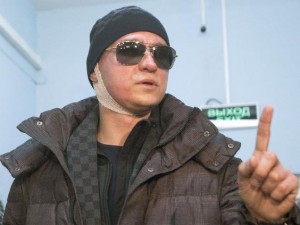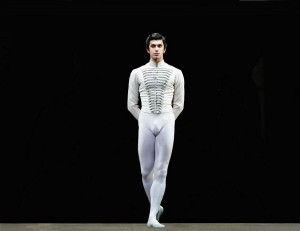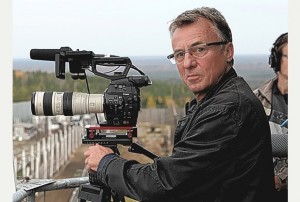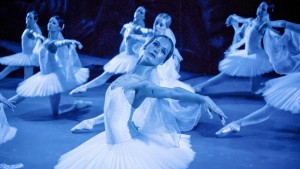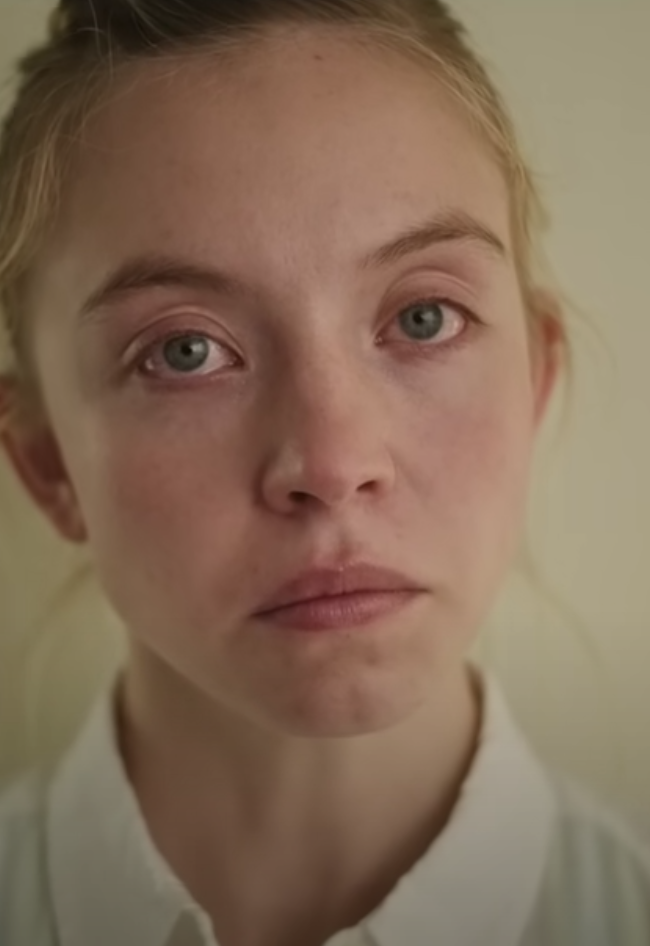A Conversation With Nick Read (BOLSHOI BABYLON)
 Among a number of excellent documentaries screening at the year’s Bermuda International Film Festival, a stand-out was director Nick Read’s Bolshoi Babylon (available now on HBO), a warts-and-all glimpse at the murky goings-on behind the scenes of Russia’s flagship ballet company. Shot over a period of seven months, and taking full advantage of unprecedented access, the film is rife with intrigue and back-stabbing rivalry, the dark underside of the Bolshoi’s immaculate and jealously guarded public facade. Read spoke to Hammer To Nail in Bermuda, the morning after Bolshoi Babylon played to a sell-out crowd.
Among a number of excellent documentaries screening at the year’s Bermuda International Film Festival, a stand-out was director Nick Read’s Bolshoi Babylon (available now on HBO), a warts-and-all glimpse at the murky goings-on behind the scenes of Russia’s flagship ballet company. Shot over a period of seven months, and taking full advantage of unprecedented access, the film is rife with intrigue and back-stabbing rivalry, the dark underside of the Bolshoi’s immaculate and jealously guarded public facade. Read spoke to Hammer To Nail in Bermuda, the morning after Bolshoi Babylon played to a sell-out crowd.
HtN: The film begins with a bizarre and quite disturbing incident. Can you give some details on that?
Nick Read: In January 2013, news broke that the Bolshoi’s artistic director Sergei Filin, who’s in charge of the ballet company, was walking home one evening and had acid thrown in his face, which even by the standards of the Russian underworld is extremely unusual. That lead to a storm of speculation and press interest in the Bolshoi, which was most unwelcome. Everybody at the time assumed it was a street crime, but about six weeks later the police announced that they’d arrested dancer Pavel Dmitrichenko, along with two other thugs. The company went into collective shock.
HtN: How long after the attack did you start filming?
NR: We’d managed to do a couple of day’s filming between the attack and the arrest, when the Bolshoi was under siege by the press and they couldn’t keep people out. After the arrest the shutters came down and they closed off access to all media.
HtN: But it was the attack on Filin that revealed there was something rotten in the state of Bolshoi?
NR: There was a lot of speculation about it, which inevitably lead people to speculate on what was going on behind the scenes at the Bolshoi. We certainly felt early on that the acid attack was the tip of an iceberg, a very rotten iceberg.
HtN: In the movie, the attack on Filin quickly becomes almost a side story. The main narrative becomes something broader and very different. Can you talk about that?
NR: Well, I was drawn o the story because I thought there was something almost Shakespearean about the drama that was going on backstage. And that was backed up by a lot of people going public with their criticisms of the Bolshoi; one dancer compared it to a giant brothel.
HtN: What was the main focus of the criticism?
NR: What we learned from the research was that there was a massive amount of factionalism, which is consistent with political behavior in Russia. There were systems of patronage and favoritism, of creating factions based on personal loyalty.
HtN: How did Filin fit into that?
NR: There are two thousand people working at the Bolshoi; the opera company is larger than the ballet company and the ballet company is the largest in the world. Filin is in charge of its 250 performers plus a lot of management and the system of ballet masters and mistresses, the tutors, a lot of whom are former dancers. He’s probably in charge of four hundred people. But there’s been a power struggle going on for several years largely between him and a character who appears briefly in the the film, Nikolay Tsiskaridze, who was an extraordinary dancer – they were both extraordinary dancers – but Tsiskaridze was probably regarded as the greatest dancer of his generation and was well known for an ego the size of Siberia. There was an enormous amount of jealously and enmity between him and Filin; Tsiskaridze felt he should have had Filin’s job in the first place. When we interviewed him his first words were, ‘I am The Bolshoi. Without me they are nothing.’ And he had a lot of support from outside the company, mainly from oligarch’s wives; he was the darling of their set. Filin also had his supporters outside the building.
HtN: So there’s more than just internal politics at play here.
NR: Yes, it’s an intensely political institution. There’s a line in the state budget and there’s always several degrees of political interference from outside. But the prelude to the acid attack was defined by this titanic duel between these two personalities
HtN: Was Tsiskaridze ever a suspect?
NR: He was implicated in creating the atmosphere in which the attack took place.
HtN: Still, even that is eclipsed by the power struggle between Filin and the company’s new director, Vladimir Urin. Can you talk about that?
NR: Well, Urin’s appointment came after a round of resignations and sackings, including that of Tsiskaridze. He came in to steady the ship, that was his brief. He’d been asked several times and turned the job down; he saw it as a poisoned chalice. But he was an immensely talented theater director, he’d been at the Stanislavsky for fifteen years and when he came in he made it clear that he wanted an end to the backbiting and the secrets and lies that defined his predecessor’s rule. And that’s what we were able, as filmmakers, to take advantage of. He wanted a new period of glasnost, of transparency at the Bolshoi, and that included letting us make the documentary. But he also extended that to the dance company, saying, ‘Most of your problems revolve around casting and the system of favoritism. I now want to give you all a chance to go for the lead roles. It was a system based far more on merit than favoritism.
HtN: What was at the root of the old system?
NR: The intense competition. The corps de ballet, the spear-carriers crowding the stage, have very few opportunities to show off their abilities. So to get noticed, to get cast in more important roles, they have to resort to tactics other than dancing. And that’s where the rumors of sexual favors, corruption and bribery stem from.
HtN: Are they more than just rumors? They’re not alluded to in the film.
NR: Well, we heard a lot of allegations about sexual favors and bribery; amounts that went to Filin were mentioned – especially by American dancer Joy Womack who resigned from the Bolshoi shortly after we started filming. She gave a poisonous interview to, I think, the Huffington Post [editors note: it was the NY Times, link here] and she was adamant that these practices went on and that they’d happened to her. But we couldn’t find a single person who would back that up. At the end of the day, as filmmakers, we have an ethical responsibility. You can’t just sling mud and report rumors. Without hard evidence it would’ve been unethical to include them.
HtN: Do you think it’s at least implicit in the film that these things went on?
NR: Hopefully the audience is given enough information to make up their own minds.
HtN: There’s a scene where Urin announces, to a heartfelt round of applause, that lead roles will henceforth be open to the entire company. The only person not happy about that –
NR: Is Filin.
HtN: And they already had history.
NR: Yeah. Filin had left the Stanislavsky without giving the statutory notice and at the same time poached several of the Stanislavsky’s best dancers to take to the Bolshoi. Urin felt that was a betrayal, so when he made the equivalent move five or six years later there was no love lost between him and Filin.
HtN: That’s pretty obvious.
NR: It is (laughs). There’s bad karma for sure. But Filin is his own worst enemy in many ways. He was a very divisive character inside the building, and we found him very elusive. There’s a scene in the film where he’s talking to the American dancer David Hallberg, and we included it because it says so much about Filin’s way of doing business: it’s all whispered, behind closed doors and very conspiratorial. That’s the way he went about it. He’s a very tricky character to deal with. We found that and the dancers did as well. That said, he suffered an appalling, shocking attack. When we started filming he was still having extensive medical treatment, and there were psychological issues he had to overcome too. We were entirely sympathetic to that. We only got the interview with him at the eleventh hour, because he’d been elusive for very understandable reasons.
HtN: How long were you filming at the theater?
NR: We had access for the whole season, which is nine months, beginning in September 2013 and we filmed inside the building every day for six or seven months.
HtN: What was the attitude to your being there in general? Were people supportive because you were helping to expose the ingrained problems or was there resentment at outsider sticking their noses into Bolshoi business?
NR: Some people made it very clear they weren’t interested in being filmed. But the Bolshoi is visited by a lot of film crews, typically TV news who only come in for a day at a time. So we did have to establish that we weren’t going away, we did have to embed, if you like, and let them know we were there for the long-term. We got to know them and we built their trust, which takes an immense amount of time, especially because, as dancers, they’re not used to the kind of questions we wanted to ask. It took many months before we could even raise the issue of the acid attack; they really waned to put that behind them as quickly as possible. It was a very traumatic episode for them, there was kind of a collective shame about it. There was also a lot of doubt over whether Dmitrichenko (who was jailed for six years for the attack) was even guilty. There were a lot of conspiracy theories circulating that he’d been framed.
HtN: What’s your take on that?
NR: Russian courts have a ninety-eight per cent conviction rate, and most of those convictions are based on confessions, as was the case with Dmitrichenko, so you have to be a bit skeptical. Having seen him in court, both in person and on film, I think his guilty plea was genuine.
HtN: Why did he do it, do you think?
Again, the theories link in Tsiskaridze and his cabal, but there’s no evidence to support that – of course it’s Russia and they specialize in conspiracy theories (laughs).
HtN: You said there was a sense of collective shame about the incident. Is that because of the role the Bolshoi has in representing Russia as a whole?
NR: The Bolshoi is in every Russian’s DNA. As a child it’s a right of passage to go to the Bolshoi, especially for young girls. It’s the showcase for everything that’s best about Russia. In the film, Prime Minister Medvedev describes it as Russia’s secret weapon. Another dancer, who we didn’t include in the film, said, ‘When diplomacy fails, they send in the ballerinas.’ When Gorbachev was trying to sell glasnost to the West, he sent the Bolshoi in to dance at the White House.
HtN: So if there’s a stain on the Bolshoi, there’s a stain on Mother Russia.
NR: Exactly, They’re immensely proud of it, and rightly so. Their reputation had been tarnished, and for all the wrong reasons. It wasn’t that the quality had lapsed, this was something they couldn’t control, so there was anger, frustration and shame.
HtN: Given that it’s still used as a political weapon, is the Bolshoi open to government manipulation?
NR: Under previous regimes, from Stalin all the way to Gorbachev, they had an active interest in the Bolshoi in a way that Putin doesn’t. To give you an example, when the Bolshoi reopened after a five-year renovation, a huge gala event with all the great and the good of Moscow an around the world, Putin decided to go and play hockey with his bodyguards. That was a political statement. Even so, there is a line in the state budget, there’s political and financial oversight from the Kremlin and on the board of trustees there are some very important Kremlin figures appointed to see it through this dark time.
HtN: How successful has Urin been in alleviating the darkness?
NR: Like many things in Russia, he’s a surprising contradiction. He was appointed by the Kremlin so you assume he’s a Putin loyalist who’s going to tow the party line. In fact, he’s quite a maverick, a strong man with his own opinions; He made it a condition of his appointment, as he says in the radio interview seen in the film, that he won’t be subject to the level of political interference that had been common previously. I asked him if he believed in democracy and he just laughed at me. He’s an old-style Soviet autocrat, but he’s a fascinating character and I warmed to him because he was good enough to let us in. He was brave enough to do that and suffer the consequences. He was determined to put his stamp on his turn in office and I think he’s done that; I think it’s a much calmer place, the company is relatively stable. There aren’t the number of resignations and sackings that there had been in the aftermath of the acid attack. As we say at the end of the film, Filin’s contract hasn’t been renewed and a replacement has been appointed.
HtN: Has Urin seen the film?
NR: We showed it to him in Moscow and he sat there chortling through every scene he was in. There was a long pause at the end, and we were nervous because had he not liked it he could have made things very difficult for us, with licenses and various other permissions we had to get. Eventually he said, ‘I was a bit tough on Filin wasn’t I?’ We said, ‘Yes,’ and he said, ‘Good.’ His only condition to begin with was that we make a fair and balanced film, and he thought we had.
– Simon Braund







